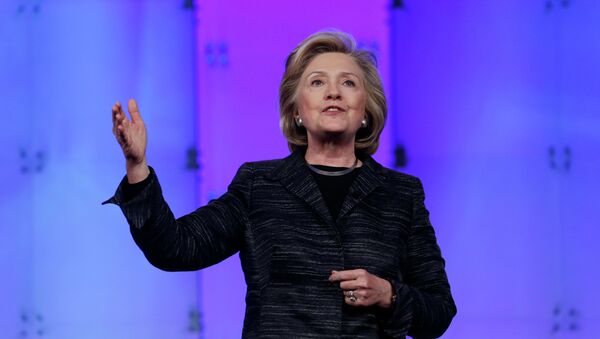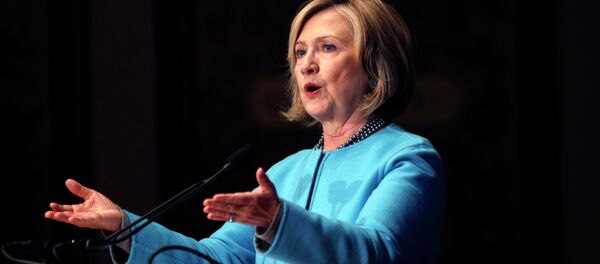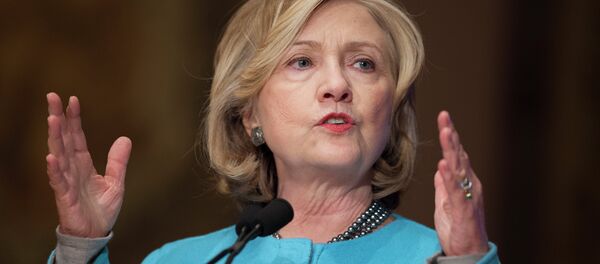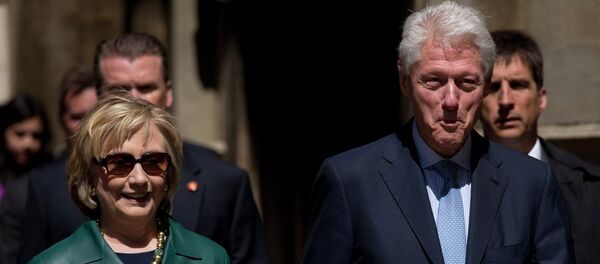After President Bill Clinton left office, he set up the Clinton Foundation, which Hillary added her name to in 2013 after leaving the State Department. An agreement reached in 2008 had outlined restrictions on accepting foreign government donations due to Obama administration concerns that her association with the foundation might raise ethical concerns while she was involved in diplomatic activities for the nation.
— Dan Merica (@danmericaCNN) February 18, 2015
But at least seven foreign governments donated millions of dollars during her tenure, and though most of those fell under exceptions stipulated in the 2008 agreement, one in particular has raised red flags, as it was not properly vetted.
A donation of $500,000 from Algeria was not cleared by the government and Foundation officials admitted as much to the Post. The money was intended for earthquake relief in Haiti, but the donation coincided with Algeria’s lobbying the State Department on human rights issues. The other six governments who donated were Australia, the Dominican Republic, Kuwait, Norway, Oman, and Qatar.
— Mark Knoller (@markknoller) February 26, 2015
As the agreement lapsed in 2013 when Clinton left the State Department, foreign governments have started to give again, raising ethical concerns anew since she is almost certainly going to be a presidential candidate. For example, the United Arab Emirates has given between $1 million and $5 million and Germany has donated between $100,000 and $250,000, and both are first-time contributors. Saudi Arabia has also resumed donations, which, before they lapsed due to the agreement, had totalled between $10 million and $25 million.
The foundation has defended the donations, and said that it “will continue to ensure the Foundation’s policies and practices regarding support from international partners are appropriate” if Clinton runs for office in 2016.
“As with other global charities, we rely on the support of individuals, organizations, corporations and governments who have the shared goal of addressing critical global challenges in a meaningful way,” said Clinton Foundation spokesman Craig Minassian. “When anyone contributes to the Clinton Foundation, it goes towards foundation programs that help save lives.”
— Greta Van Susteren (@greta) February 27, 2015
This is just the latest in a series of concerns raised about the ethical implications of the Foundation’s donors on Clinton’s nearly-certain 2-16 presidential run.
Apart from the Algerian donation, several donations came from states with difficult US-relations or troubling human rights records, such as Qatar, UAE, Saudi Arabia, and Kuwait.
Blood in the Water for Opponents
The ethical questions around the donations have left Clinton open to criticism from her political opponents.
— America Rising PAC (@AmericaRising) February 26, 2015
Carly Fiorina, a former tech executive considering a 2016 GOP presidential bid was quick to jump on the issue in a speech to the Conservative Political Action Conference (CPAC) on Thursday.
“The alarming rate at which these contributions are now coming in presents a massive conflict-of-interest problem for her,’’ Michael Short, a spokesman for the Republican National Committee, told the Wall Street Journal.
“The potential conflict of interest for someone in Clinton’s position requires they return the money, and the ethical lapse to accept the money in the first place calls into question Hillary Clinton’s judgment,” read a statement from the conservative political action committee America Rising.
The foundation also received a total of $26 million in corporate donations by at least 60 companies while Clinton held public office in 2009 —2013, the Wall Street Journal found.
After a massive leak of account information from the Swiss arm of UK-based bank, HSBC, it was found that several account-holders at the scandal ridden bank had also been Clinton Foundation donors — though none was found to have participated in the tax-dodging practices that have tarnished the bank’s reputation.





